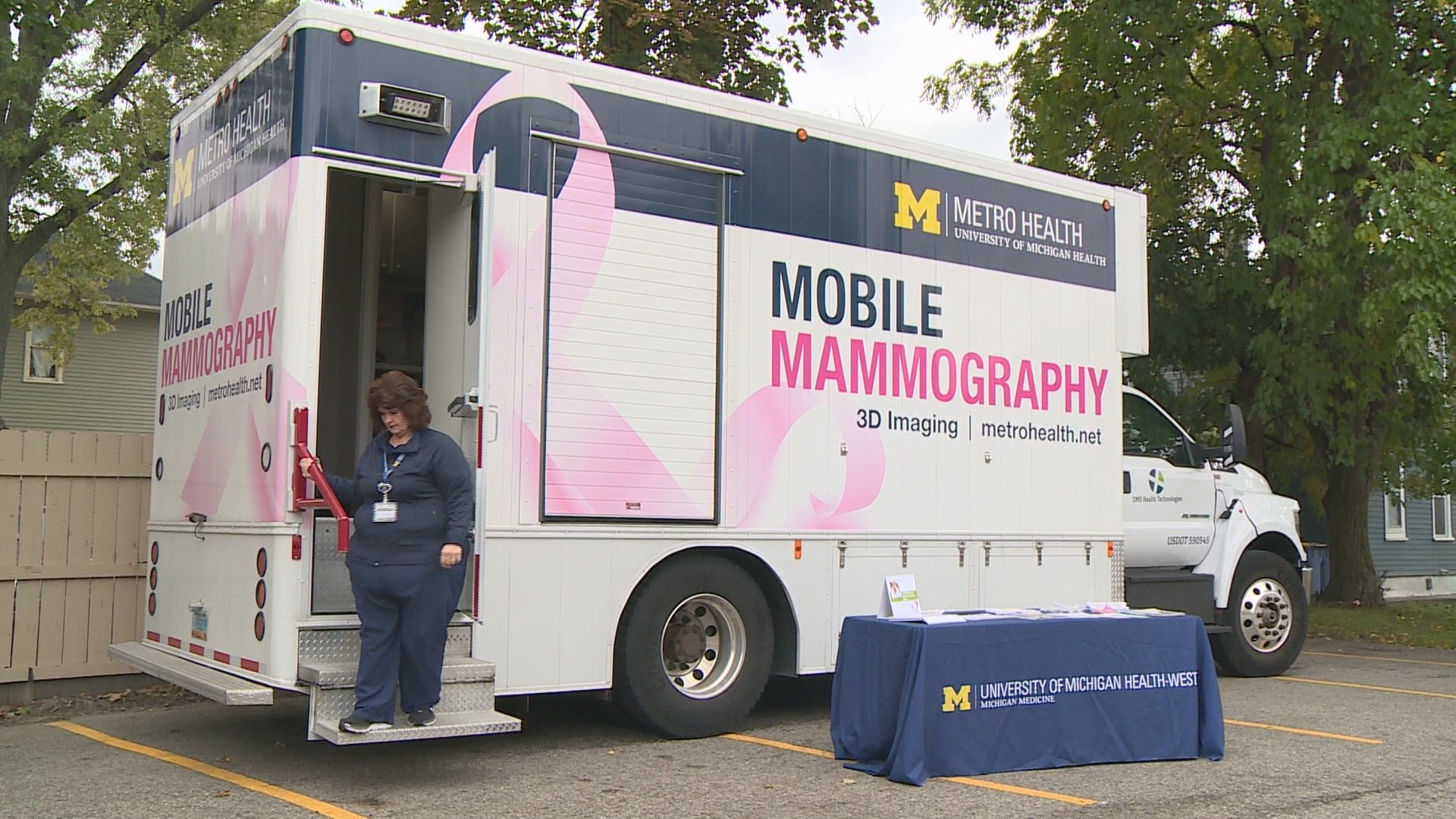GRAND RAPIDS, Mich. — It's 13 Friends for Life Day -- the time to remind you and your friends to know her normal. That includes everything from a self breast exam to scheduling a yearly mammogram.
Local health officials want to encourage Hispanic women to really know their normal when it comes to their health, as this group is at higher risk of breast cancer diagnosis and death.
"We're going to have three mammography clinics total," Veronica Mascorro with the Hispanic Center of Western Michigan (HCWM) says.
The center wants to bring mammography appointments straight to women who need them. The mobile clinic from the University of Michigan Health West is equipped with some of the latest technology.
"The really cool thing about their mobile mammography bus is that they actually offer 3D scans, which is not the usual with mobile mammography buses," Mascorro says.
Breast cancer is the most common cancer and the leading cause of cancer death in Hispanic women.
Mascorro is the promotora de salud, or community health worker, at the center. She says there are multiple obstacles that Hispanic women face as they seek healthcare, like language barriers and long wait times.
"I know that my mom personally, a few years back, she had a scare where she felt a lump in her breast. And she had to wait, I think about four months to go get her screening," she says.
There are written resources in Spanish at the mobile mammography clinics, as well as interpreters who can speak Spanish with patients to walk them through the entire process.
Another barrier is being underinsured or uninsured, which Mascorro says can lead to regular doctor's appointments being missed.
"It's really important because a lot of times these women don't have health care providers that they visit regularly," she says.
"There are also concerns that they tend to have less access to screening mammography and are subjected to delays in their diagnosis," Dr. Jessica Thompson says.
Dr. Thompson, a breast surgical oncologist with Corewell Health, says early breast cancer can be treated and cured with a survival rate of over 90 percent.
"For the Latina population who tend to be diagnosed at later stages, making sure that those screening exams are readily accessible is of the utmost importance," she says.
Dr. Thompson adds that the Betty Ford Breast Care Services also offers a mobile mammography clinic. She also stressed the importance of genetic counseling and testing.
"I think that is, again, something that we as healthcare providers should be initiating that conversation with our patients, but also spreading that awareness with our Latina breast cancer survivors so that they can be appropriately counseled, in addition to knowing not only their own personal risk, but their family members risk," Dr. Thompson says.
The mobile mammography clinic at the HCWM will return for a final time on November 5, from 9 a.m. to 4 p.m. It'll be in the parking lot at 1204 Cesar E. Chavez Avenue Southwest in Grand Rapids.
"It's definitely really important that we catch these types of things before it's too late," Mascorro says.
The first two clinics were held in September and October. Mascorro says women made appointments and walked in for their mammograms.
"We've also had women who, at past mobile mammography screenings at the bus, that was when they actually caught a lump in their breast. That's when they actually caught something," she says. "So we had one participant, who when she saw that we were going to have it, she was really excited because she wanted to check and make sure that the lump didn't come back and that she was, (that) everything was okay with her."
►Make it easy to keep up to date with more stories like this. Download the 13 ON YOUR SIDE app now.
Have a news tip? Email news@13onyourside.com, visit our Facebook page or Twitter. Subscribe to our YouTube channel.

